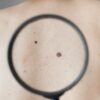Women who are at high risk of developing breast cancer and who face a low risk of suffering adverse events should be given a drug such as tamoxifen, according to a recently released recommendation. The US Preventive Services Task Force (USPSTF) says that women at low breast cancer risk should not be given medications such as raloxifene, exemestane and anastrozole for breast cancer prevention because they can cause adverse events. Blood clots were reported with tamoxifen and raloxifene (but not the other two drugs), while an increased risk of endometrial cancer and cataracts were seen with tamoxifen. Posted January 15, 2019. Via USPSTF.
An FDA advisory panel overwhelmingly voted that the benefits of the gout medication Uloric (febuxostat) outweigh its risks, even though a postmarket study showed that patients on the drug had a higher rate of cardiovascular events compared to those on another medication. However, most of the advisory committee members agreed that Uloric should be a second-line treatment for Gout. A postmarket study released last year found a higher rate of cardiovascular death with Uloric compared to Zyloprim (allopurinol). Uloric’s label already contains warnings about cardiovascular events, liver toxicity and serious skin reactions. Last year, the consumer advocacy group Public Citizen sent a petition to the FDA urging that Uloric be pulled from the market. Posted January 11, 2019. Via MedPage Today.
Common prescription sleeping pills are so strong that about half of people taking them are unable to wake up even when a fire alarm is going off. Japanese researchers note that safe hypnotic medications should have the ability for people to wake from sleep in a dangerous situation. However, most sleep medications – including benzodiazepines – don’t allow this. The researchers tested a drug in a new class of sleep medications known as dual orexin receptor antagonists (DORA) on a group of mice. Another group of mice was given the benzodiazepine triazolam and a third group, a placebo. When threatening stimuli were presented to the mice, those in the placebo and DORA group woke up quickly, while waking in the triazolam group was delayed. After the threat had passed, the DORA group was able to fall back to sleep faster than those on a placebo and as fast as those in the triazolam group. A DORA for sleep, Belsomra (suvorexant), was approved by the FDA in 2014. Posted January 8, 2019. Via Frontiers in Behavioral Neuroscience.






